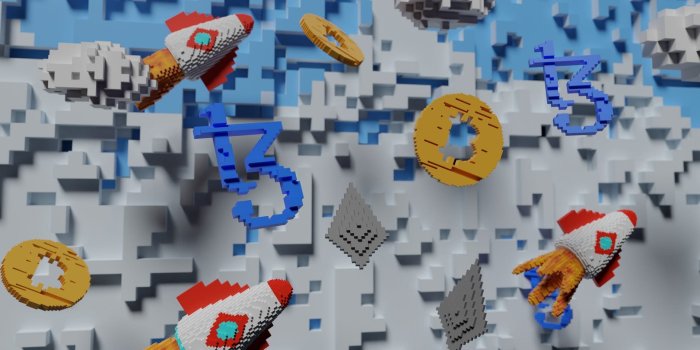From buying a house to managing your health, blockchain could help transform almost every aspect of customer experience (CX). Danny Bluestone, founder and chief executive officer of digital transformation agency Cyber-Duck, looks at why blockchain has such CX potential – and why it’s not yet always the answer.
CX in 2022 is a game of two halves.
On one hand, we have a cashless society where you can shop and travel just using a mobile.
On the other, some banks still require mortgage forms by fax; pregnant women carry around antenatal notes folders; house buying involves never-ending paper trails; and it’s almost impossible for environmentally-conscious consumers to understand what’s in the things they buy.
For many of these experiences, blockchain could provide an answer.
What is blockchain anyway?
Blockchain is a distributed digital ledger of data in which account transactions or activities are recorded. Every time a new piece of information is added to the ledger, it’s recorded, locked by encryption and saved as a ‘block.’
The block contains the cryptographic hash – data translated into a string of letters and numbers (like Bit.ly does to long URLs) and a timestamp. Through this hash, each block contains information about the previous block, ‘chained’ together. Typically, the encryption uses a public/private key model, with the public key freely available, but only the blockchain owner’s private key can access it all. Only the latest version can added to (not altered).
Blockchain is decentralized across user devices or ‘nodes.’ Everyone in the blockchain has a copy of the same encrypted data. If someone tries to alter the data, or it gets corrupted, it automatically shows up in the hash.
Continue reading: https://www.thedrum.com/opinion/2022/03/15/blockchain-could-transform-cx-here-s-why-people-aren-t-using-it-yet
CX in 2022 is a game of two halves.
On one hand, we have a cashless society where you can shop and travel just using a mobile.
On the other, some banks still require mortgage forms by fax; pregnant women carry around antenatal notes folders; house buying involves never-ending paper trails; and it’s almost impossible for environmentally-conscious consumers to understand what’s in the things they buy.
For many of these experiences, blockchain could provide an answer.
What is blockchain anyway?
Blockchain is a distributed digital ledger of data in which account transactions or activities are recorded. Every time a new piece of information is added to the ledger, it’s recorded, locked by encryption and saved as a ‘block.’
The block contains the cryptographic hash – data translated into a string of letters and numbers (like Bit.ly does to long URLs) and a timestamp. Through this hash, each block contains information about the previous block, ‘chained’ together. Typically, the encryption uses a public/private key model, with the public key freely available, but only the blockchain owner’s private key can access it all. Only the latest version can added to (not altered).
Blockchain is decentralized across user devices or ‘nodes.’ Everyone in the blockchain has a copy of the same encrypted data. If someone tries to alter the data, or it gets corrupted, it automatically shows up in the hash.
Continue reading: https://www.thedrum.com/opinion/2022/03/15/blockchain-could-transform-cx-here-s-why-people-aren-t-using-it-yet

